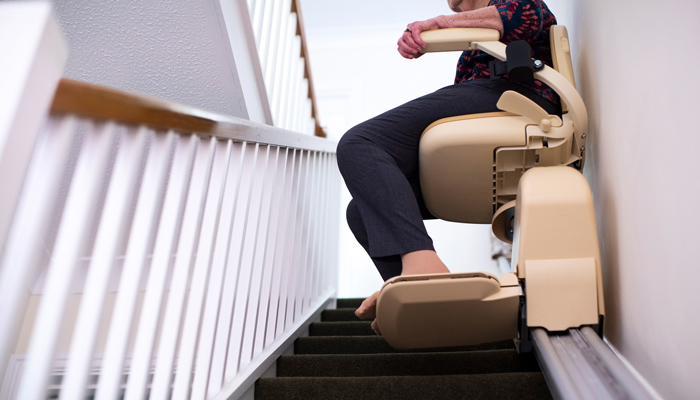Fundamental Shift in Children’s Social Care Set Out
The final report from the independent review of children’s social care, a “once-in-a-generation opportunity to reform systems and services”, has been published.
The findings of the report stress the importance of early intervention for families who need help. It found that, at the moment, there is a focus on crisis intervention with a lack of responsive and effective support at a much earlier stage. The report has identified the need for a radical reset to the children’s social care system, recommending an injection of approximately £2 billion over the next five years to rebalance spending in the system.
To do this, the report has recommended a number of changes, which can be summarised as follows:
- A revolution in ‘Family Help’ to replace ‘targeted early help’ and ‘child in need’ work
- A just and decisive child protection system with wider system improvements through multi-disciplinary help
- A much greater focus on family networks being included in decision making before children are placed into the care system
- Regional control through the introduction of Regional Care Cooperatives to take back control of the system and address sufficiency issues
- Recognition of ‘care experience’ as a protected characteristic and the need for a wider range of organisations, such as schools, colleges and universities, to act as corporate parents for looked after children
- Realising the potential of the workforce by providing improved professional development for social workers as well as improvement case management systems and reducing administrative tasks
Introducing a National Children’s Social Care Framework to set direction and purpose to the system
‘Transforming care’
In this chapter of the report, there is a focus on the regulation of care providers. The report rightly identifies the issue of sufficiency in the sector, both in residential children’s homes and a shortage of foster carers.
Care standards
The report considered the commissioning and running of children’s homes and found that the ability to provide tailored home environments for children is being constrained, rather than supported, by a ‘highly complex web of standards and legislation’. The report therefore recommends a fresh set of standards, which set a high bar for quality and care, whilst allowing for the flexibility needed to tailor homes around the varied needs of children. The report recommends that these standards apply to all homes where children live, replacing all regulations and guidance currently in place for residential children’s homes, fostering homes and unregulated provision. To put this into perspective, it would mean potentially replacing a total of 13 pieces of legislation and statutory guidance.
The report recommends that, rather than being prescriptive about minimum standards, there should be a focus on defining a small number of quality standards expected from all homes, along with the enabling values required to delivery them. It is recommended that these standards should be designed by an expert group, including those that have lived experience of children’s social care and should be sufficiently flexible to enable access to opportunities to help children and young people with their educational, health and employment outcomes.
Unregulated provision
It is likely to be of little surprise that the report has recommended the abolishment of unregulated provision for all children aged under 18. The report highlights that 5,860 children spent time in unregulated accommodation away from their home area in 2018/2019, which is an increase of 128% from the position six years ago.
In 2021, the government decided to implement a ban for unregistered provisions for those aged 16 and under. Whilst this was tentatively welcomed, concerns were expressed regarding the issues of sufficiency in the sector to accommodate the number of placements needed for children. This is echoed in the report, with reference to some harrowing legal cases where children have been subject to deprivation of liberty safeguards in circumstances where there are simply no registered provisions available to accommodate their needs. This issue has not been addressed by way of the introduction of the ban.
Despite the review commenting on these sufficiency issues, the report has made recommendations that the government speedily introduce regulation for provisions providing support to those aged 16 – 18, before the introduction of a new set of care standards. It is difficult to see how this will be of benefit when the sufficiency issues have yet to be addressed and based on the report’s recommendations, are unlikely to be addressed for a number of years.
If the government accept this recommendation, providers of unregulated supported living provisions will be required to register with Ofsted, as they will be deemed to be providing ‘care’ and ‘accommodation’, as opposed to just accommodation.
Regional care cooperatives
The report found that how we find, match, build and run homes for children in care is ‘broken’. The report highlights this as being as a result of weak oversight, high cost and profiteering, poor planning and a lack of coordination.
In order to address these issues, the report recommends a radical change to the commissioning and oversight of children’s social care services through the introduction of Regional Care Cooperatives (RCCs). The report outlines that care needs to be more tailored to teenagers, who are the most likely group to enter care currently, and less binary for children who can continue to safely see their families. The report also stresses that care needs to be significantly better at keeping children close to their community.
The report recommends that RCCs will be responsible for:
- Having sufficiency data in an area, therefore planning for future needs
- Running and creating new public sector fostering, residential and secure care services in the region
- Commissioning not-for-profit and private sector care for children as necessary, where the RCC chooses to do so
It is recommended that local authorities should have direct involvement in the running of RCCs and children will continue to be in their care. The report considers that RCCs will make better informed decisions and will more frequently buy capacity, rather than ‘spot purchase’ homes and will have the financial confidence to create new in-house or not-for-profit types of care homes in order to transform care. The report envisages that this will better guarantee that children will remain in their home area, as well as reducing the scope for profit making.
The report recommends a windfall tax on profits made by the largest private children’s home providers and independent fostering agencies, to contribute to the costs of transforming the care system.
Ofsted inspection and oversight
The report recommends that Ofsted’s powers should be extended in a number of ways. This includes:
- Enabling Ofsted to have a market oversight function for the residential and foster care market, by giving it powers to access and interrogate the financial records and accounts of providers, as well the ability to take action where it has concerns that a provider is operating at a high degree of financial risk. It is envisaged that this function will involve joint working with the CQC, who already carry out a similar function for adult social care.
- Ofsted should create a new framework and be responsible for the inspection regime of RCCs. The report recommends a focus on the proportion of children who have their needs met, stability of homes and the percentage of children who are able to live close to their community.
- A need to improve the role of Ofsted, to intervene more effectively when services are not good enough. To do this, the report recommends an increase in transparency about how judgements are made, as well as ensuring they have a rigorous underpinning. The report cites providers, as a part of the review, said that one of the reasons they will not take in particular children, is in case they receive a poor inspection outcome if things go wrong. The report identifies a lack of understanding and transparency about what Ofsted are looking for, as well as professionals second guessing what they are looking for, or what they might disapprove of.
- In addition, there are recommendations for Ofsted to improve the clarity of their frameworks, specifically what they mean by ‘quality’, ‘effectiveness’ and the impact of services provided to children.
These recommendations will no doubt be welcomed by providers, but it remains to be seen if it will be accepted and effectively implemented by Ofsted.
Conclusion
The report makes reference to various reviews that have taken place over the previous 30 years. It states that they have considered previous attempts to reform and have attempted to finish the work that was started decades ago, revisiting ideas that were tested but set aside. This is a clear indicator that not enough progress has been made and that the recommendations put forward require urgent consideration and implementation, for a sector that is described as already being at crisis point.
Whilst the recommendations are wide ranging and bold, it’s easy to see how attempts to pick and choose recommendations from the report could have a damaging impact on an already struggling system. Concerns are likely to be expressed by the private sector, given that the report’s biggest changes focus on the commissioning of services, which it states should reduce ‘spot purchasing’ and increase local authority-owned services.
The regulatory landscape will undoubtedly see significant changes and providers will need to be alive to any accepted recommendations, particularly in the unregulated sector. The changes to the care standards may apply across the whole of the social care sector, if taken forward. This will require in depth reviews and analysis of those services already in operation, to ensure compliance with any new standards. This will no doubt be a focus of Ofsted and providers will need to ensure they are aware of any new guidance issued regarding inspection frameworks as a result of any changes to standards.
About the author

Carolyn Baker-Mellor is a respected industry leader with over 35 years' experience within the care insurance sector. She works across a wide spectrum of insurance product and policy development, delivery and optimisation for care industry clients, including managing global corporate accounts, working closely with trade associations, and helping clients in protecting their businesses and personal assets.
Care insurance from Towergate
Towergate Insurance are partners with Care England, NCF, Homecare Association and a number of regional associations and are actively engaging with local Government officers to provide updates on market restrictions. We also offer to speak with the CQC oversight committee about challenges within the insurance sector and work closely with the British Insurance Brokers‘ Association and the Association of British Insurers to ensure that wider messages are being heard across the market.
To find out more about how we can assist you see our care insurance webpage or email caredivision@towergate.co.uk. We can also advise on market updates.
Date: November 22, 2022
Category: Care and Medical











